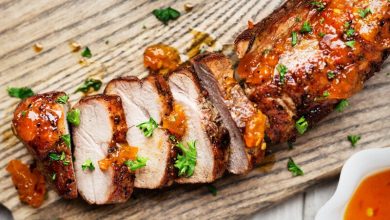🍸🌟 The Alta Mire Gin Fizz: A Classic Cocktail 🌟🍸
History 📜:
The Alta Mire Gin Fizz is a delightful cocktail with a history dating back to the early 20th century. It’s believed to have originated in New Orleans, Louisiana, which is known for its vibrant cocktail culture. This fizzy concoction was a variation of the classic Gin Fizz and was created to offer a refreshing twist to gin enthusiasts.
Components 🍹:
To make an Alta Mire Gin Fizz, you’ll need the following components:
- 2 oz Gin
- 1 oz Fresh Lemon Juice 🍋
- 1 oz Simple Syrup 🍯
- 1/2 oz Orange Liqueur (such as Triple Sec or Cointreau) 🍊
- 1 Egg White 🥚
- Club Soda
- Ice Cubes 🧊
- Orange or Lemon Zest for garnish 🍊🍋
Preparation Steps 🧪:
-
Chill Your Glass: Begin by chilling a highball or Collins glass in the freezer or by filling it with ice and water.
-
Dry Shake: In a cocktail shaker, add the gin, fresh lemon juice, simple syrup, orange liqueur, and egg white. Dry shake vigorously (without ice) for about 10-15 seconds. This helps create a frothy and creamy texture.
-
Add Ice: Fill the shaker with ice cubes and shake again for another 10-15 seconds to chill the mixture.
-
Strain: Strain the cocktail into your chilled glass. The egg white will give it a velvety texture.
-
Top with Club Soda: Carefully top up the glass with club soda, which adds the fizziness to your Alta Mire Gin Fizz.
-
Garnish: Finally, garnish your cocktail with a twist of orange or lemon zest for a citrusy aroma and visual appeal.
-
Serve: Serve your Alta Mire Gin Fizz immediately. Enjoy responsibly!
Time Needed ⏳:
Preparing an Alta Mire Gin Fizz doesn’t take too long, typically around 5-7 minutes. It involves shaking and garnishing, making it a relatively quick cocktail to whip up for your enjoyment.
This classic cocktail is a delightful blend of citrus, sweetness, and the effervescence of club soda. It’s perfect for sipping on a warm summer day or as a refreshing evening treat. Cheers! 🥂🍹
🍸📊 Nutrition Facts and Health Information for Alta Mire Gin Fizz 📊🍸
Unfortunately, alcoholic beverages like the Alta Mire Gin Fizz typically don’t come with standardized nutrition labels like packaged foods. However, I can provide some general insights into the potential nutritional and health aspects of this cocktail:
Calories: The calorie content of an Alta Mire Gin Fizz can vary depending on the specific brands and proportions of ingredients used, but it’s typically in the range of 150-200 calories per serving.
Alcohol: The main component of this cocktail is gin, which contains alcohol. Consuming alcohol should be done in moderation as excessive alcohol consumption can have negative health effects.
Sugar: The simple syrup and orange liqueur in this cocktail contribute to its sweetness. Be mindful of the sugar content if you’re watching your sugar intake.
Protein: The egg white in the recipe adds a small amount of protein, but it’s not a significant source.
Vitamins and Minerals: The lemon juice provides a small amount of vitamin C, while the orange liqueur may contribute some vitamin C as well. However, these amounts are relatively small.
Health Considerations:
-
Alcohol Consumption: As with all alcoholic beverages, it’s essential to consume the Alta Mire Gin Fizz in moderation. Excessive alcohol consumption can lead to health issues, including liver problems and an increased risk of accidents.
-
Sugar: The cocktail’s sweetness comes from the simple syrup and orange liqueur, which means it contains added sugars. High sugar intake can contribute to weight gain and other health problems. If you’re concerned about sugar, consider using a sugar substitute or reducing the amount of simple syrup.
-
Allergies: Some individuals may be allergic to egg whites, so be cautious when using them in your cocktail.
-
Hydration: Alcohol is a diuretic, which means it can lead to increased urination and potential dehydration. It’s essential to drink water alongside alcoholic beverages to stay hydrated.
Remember that the Alta Mire Gin Fizz is meant to be enjoyed in moderation and as part of a balanced diet. If you have specific dietary concerns or health conditions, it’s always a good idea to consult with a healthcare professional or nutritionist for personalized guidance.



